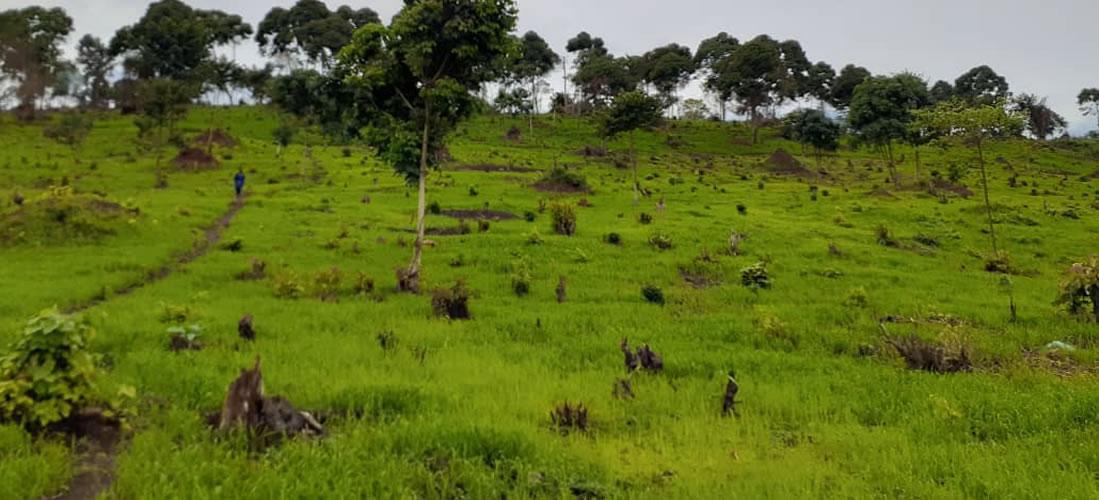Africa-Press – Angola. A total of 208 Agricultural Field Schools (ECA) will be created in the province of Cuando Cubango, during the next agricultural campaign of 2024/2025, aiming to improve agricultural techniques and guarantee greater results in production.
Speaking at the end of a three-day visit to the province, the head of the National Department of Rural Extension of the Institute of Agrarian Development (IDA), Avelino Mossande, explained that the ECA implementation plan is framed within the Family Agriculture and Commercialization Development Project (MOSAP-3), which includes three components: agricultural, livestock and forestry, and will initially be implemented in Cuando Cubango, Huíla, Cunene, Namibe and Benguela.
Without revealing the amount of the project that is being financed, through a line of credit from the World Bank, he stated that after the first phase, MOSAP-3 will cover the remaining 13 provinces of the country, over a period of seven years.
Bet on Cuando Cubango
Avelino Mossande explained that the project that is under the coordination of IDA, and the monitoring work carried out so far, in Cuando Cubango, has already made it possible to identify and register a total of 150 of the 208 planned groups that correspond to the same number of schools to be constituted in the nine municipalities that make up the province.
For teaching purposes, a field school must have 20 to 35 peasants, which is a universal norm to facilitate the transmission of knowledge during a given training period.
“Trainees, in addition to learning new agricultural production techniques, will receive knowledge on strengthening agricultural production capabilities, aimed at the introduction of drought-resistant crops, combating pests, animal health and irrigation system practices”, he said..
With regard to the forestry component, farmers will be trained in environmental education that is aligned with environmental preservation, with a view to putting an end to anarchic burning for agricultural and commercial purposes.
In this regard, he said that the training cycle for farmers in the field school will be carried out in two cycles where farmers, after learning good agricultural practices, will replicate new techniques on their properties and have the mission of transmitting the new methodologies learned to others communities in their villages.
“From now on, the school is not exactly a physical structure, it is just a rural geographic space, where peasant families have the priority of meeting to improve new knowledge about agricultural production factors, guided by an agronomist or other similar technician”, clarified.
Avelino Mossande guaranteed that once the training of farmers has been completed, within the framework of the MOSAP-3 project, members will benefit from a technological package that corresponds to a set of materials or kits necessary for a given crop, based on each area of training.
Each participant, he continued, will be able to choose a technological package that they want to implement, such as raising chickens, cattle, goats, pigs, corn, pasta, rice, beans, sweet potatoes and cassava production, in order to enhance them.
The operationalization of the delivery of these technological packages will be done through a credit bank that will be given according to a form to be given at the end of each training cycle, in order to have work initiatives that will contribute to the application of the knowledge acquired during the training in field schools.
The head of IDA’s National Department of Rural Extension acknowledged that the institution he heads, despite having qualified staff for training, are still not enough to cover the training activities for peasants in the five provinces selected in this first phase of the project.
For this reason, he argued that in order to carry out the program it will be necessary to recruit more extension staff, that is, technicians and students who acquired knowledge at universities, high schools and professional training centers, such as Cuando Cubango and other regions that launched several finalists in this area onto the job market.
He highlighted that the provinces with fewer professionals in the sector will also benefit from the assistance of technicians from other regions with a higher level of agricultural development, through temporary rotation methods to achieve the desired goals of the project.
MOSAP project brings new methodologies
Avelino Mossande lamented the effects of drought that have regularly devastated crops of corn, pasta, beans and other products.
The head of IDA assured that the MOSAP-3 project brings with it solutions to reverse the current situation with new agricultural production methodologies that will make farmers more resilient, opting for diversified production with drought-resistant crops.
During the training cycle, he said, peasants will be subjected to new experiences in the production of other products that are more resistant to drought, especially tubers, vegetables and cereals.
“The objective of implementing the ECA is to instruct people to think. Not to do it because their grandfather did the same thing. Farmers must carry out a study if it is necessary to embark on the production of other temporary replacement crops that serve as an alternative to guarantee supply of food for a certain period”, he concluded.
jornaldeangola
For More News And Analysis About Angola Follow Africa-Press






